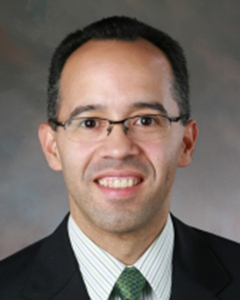Babies After 35: What You Need to Know
Thirty-five seems to be the magic number everyone mentions in regards to women’s fertility.
At the same time, the media and pop culture proudly hold up celebrities like Halle Berry, Geena Davis and Gwen Stefani as shining examples of motherhood after 40.
All these messages can be confusing for women, especially those in their 30s and 40s who are trying to get pregnant. Many women who come to my office worry about getting pregnant after a certain age and whether it’s possible to have a healthy pregnancy as you get older.
The answer is yes, but biology does play a very important role in fertility.
Causes of Infertility
For one, egg quantity and quality decline as you age. Ovulation also changes as women get older. You may not ovulate with the same regularity and, during some months, you may not release an egg at all.
Age-related infertility may be becoming more common because many women are waiting until their 30s to begin a family, according to the American Society of Reproductive Medicine. Children are a huge responsibility—both emotionally and financially—and most people are more settled in their careers and financially stable around this age, so it makes sense to wait. However, it’s also important to understand the biological changes that occur at this time. Women are born with around one million follicles, the part of the ovaries that contains eggs. By puberty, this number drops to 300,000 follicles and only about 300 of these follicles will release an egg during a woman’s reproductive years.
Women are at peak fertility in their 20s, but fertility slowly decreases in future decades. For example, a healthy 30-year-old woman has a 20 percent chance of getting pregnant every month. For women in their 40s, that figure is less than 5 percent. According to the Centers for Disease Control and Prevention, about 6 percent of married women between the ages of 15-44 can’t get pregnant after one year of trying. About 12 percent of women in this age group, regardless of marital status, also have challenges getting pregnant or carrying a pregnancy to term.
I mention these figures not to scare you, but to give you facts about the challenges that some women face when they try to conceive. However, if you look at these numbers in reverse, a majority of women can successfully get pregnant, and thankfully there are several things we can do to increase your chances.
Reproductive Health After 35
No matter what age, it’s important to be as healthy as possible before you try to conceive. Aside from age-related changes with fertility, smoking, extreme weight loss or weight gain and too much stress can affect your reproductive health.
We generally don’t begin to be concerned about fertility until a woman 35 or older has tried to get pregnant for at least 6 months (for women in their 20s, it’s one year). Trying to have a child is an extremely personal process, and when this process doesn’t go as planned many women feel frustrated or concerned. That is only natural. If you and your spouse are at this point, talk to your doctor about what may be going on. If you have painful, irregular or absent periods, have endometriosis or pelvic inflammatory disease or have had a previous miscarriage, these things can affect fertility.
As doctors, we’re here to help and develop a solution to the challenges our patients face. If you have tried for several months to get pregnant, we will review you and your partner’s medical and sexual history and order tests to pinpoint what could be the cause. Some people think infertility is related to women only, but . In some cases, even if a woman is over 35, she may not be getting pregnant for other reasons that have very little to do with her age. These things could include other pre-existing health conditions or some of the risk factors I previously mentioned.
It is possible to have a healthy pregnancy in your 30s—and even 40s. It happens to many women every day. But every person is different, and for some people the road to parenthood isn’t as smooth as it should be. If you are experiencing challenges getting pregnant, please don’t be discouraged. Know that you are not alone. Seek the advice of your doctor or a fertility specialist who can address the underlying cause and hopefully help you and your spouse successfully conceive.


